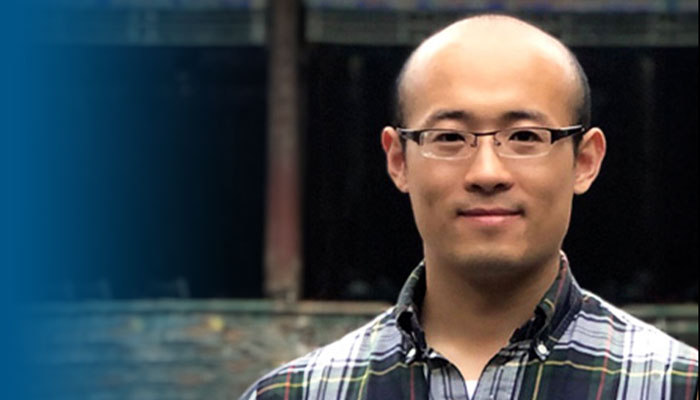HOW CAN WE HELP YOU? Call 1-800-TRY-CHOP
In This Section
Faculty Spotlight: Engineering Immune Responses With Leyuan Ma, PhD

Leyuan Ma, PhD
Editor's Note: Meet the diverse, dedicated, and distinctive faculty who are discovering and developing pediatric life-changing solutions at Children's Hospital of Philadelphia Research Institute, in our monthly Faculty Spotlight series. This year, we're celebrating our internal grant recipients who are pursuing new avenues of research with this dedicated funding support. Although we cannot feature all the award recipients in this series, we congratulate their continued hard work and scientific contributions to pediatric research. In this Q&A, we meet Leyuan Ma, PhD, recipient of the Mentored Research Pilot Grant Program for Junior Faculty. Stay tuned for more from our Faculty Spotlight series throughout the year.
How long have you been at CHOP, and tell us about your research specialty?
I have been at CHOP since January 2022, and I run the Ma Laboratory for Immune Engineering. Our interdisciplinary research lies at the interface of immunology and engineering. Our goal is to decode the molecular and cellular crosstalk between immune cells and their microenvironment in normal and pathological conditions, such as tumors, and leverage these crosstalk mechanisms to develop innovative biomaterials, protein, and cell-based immunotherapies.
Why did you choose to focus on that specialty?
I am passionate about developing novel and robust therapeutics to treat immunological diseases. This passion originated from my doctorate training in cancer biology and molecular mechanisms of drug resistance, where I observed inevitable cancer relapse irrespective of the treatments using conventional approaches. This observation motivated me to seek alternative solutions in the emerging field of immunology and engineering. I believe that the solutions lie within our own body, in our immune systems, and that engineering approaches could be harnessed to steer immune responses to restore immune homeostasis.
What is a new avenue of research you're able to explore as result of the Junior Faculty Award?
The junior faculty award allows me to explore new directions in engineering synthetic vaccines. This new vaccine platform builds on the original synthetic vaccine we developed to specifically enhance the chimeric antigen receptor (CAR) T-cell therapy by allowing us to team up CAR T cells more efficiently with endogenous T cells, which is an essential step to achieve superior anti-solid tumor efficacy.
Can you tell us about a recent research project that you are excited about?
We are excited about a customized CD19-CAR T boosting vaccine we recently developed. This vaccine is specifically tailored for all four FDA-approved CD19-targeted CAR T cells aiming to address the issue of CD19+ relapse in patients receiving CD19 CAR T therapy. CD19+ relapse is closely associated with CD19 CAR T loss. Our vaccine is expected to reinvigorate the waning CD19 CAR T cells, improve CAR T persistence, and prevent CD19+ leukemic relapse in pediatric patients.
What are the long-term research questions you hope to answer?
While my research still largely focuses on treating cancer by provoking anti-tumor immune response, the technologies we developed for modulating immune responses can be tailored to suppress immune response and treat inflammatory diseases, such as autoimmunity.
In the long term, we aim to leverage:
- Chemical and biomaterials engineering (immunomodulation) to dissect and manipulate immune cell-cell and cell-tissue crosstalk to enhance cellular therapy and promote vaccine development
- Genetic engineering and synthetic immunology (immunosensing) to create intelligent cells that integrate environmental cues for decision making
- Protein engineering (immunotherapy) to develop safe and potent immune-modulatory proteins, such as cytokines and enzymes, with desired trafficking profile, release kinetics, and enhanced or novel function.
As an immune engineer, my goal is to create solutions for unmet clinical needs.


